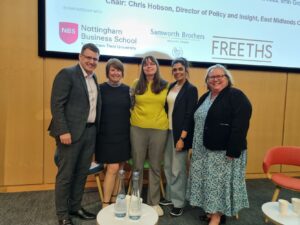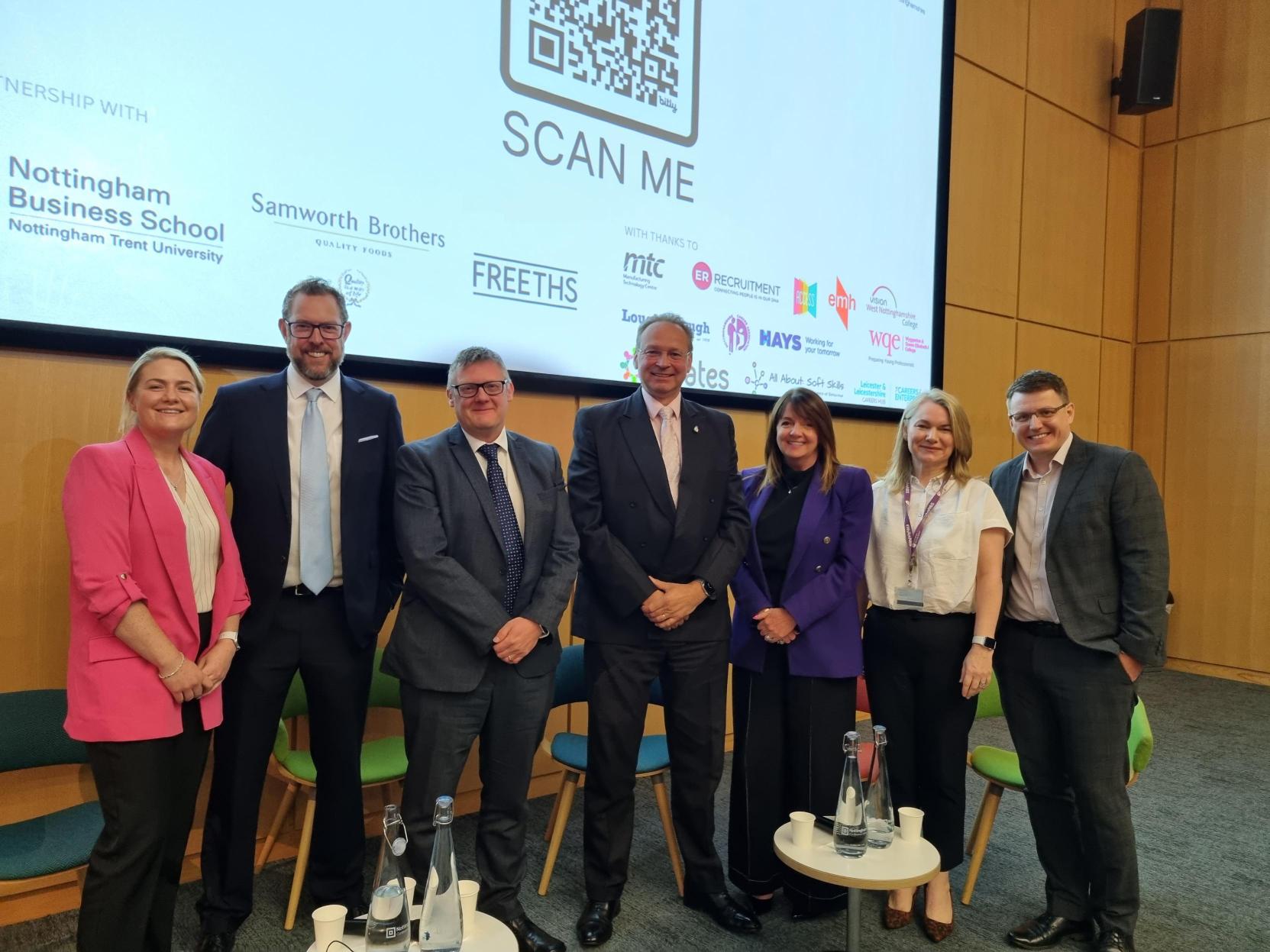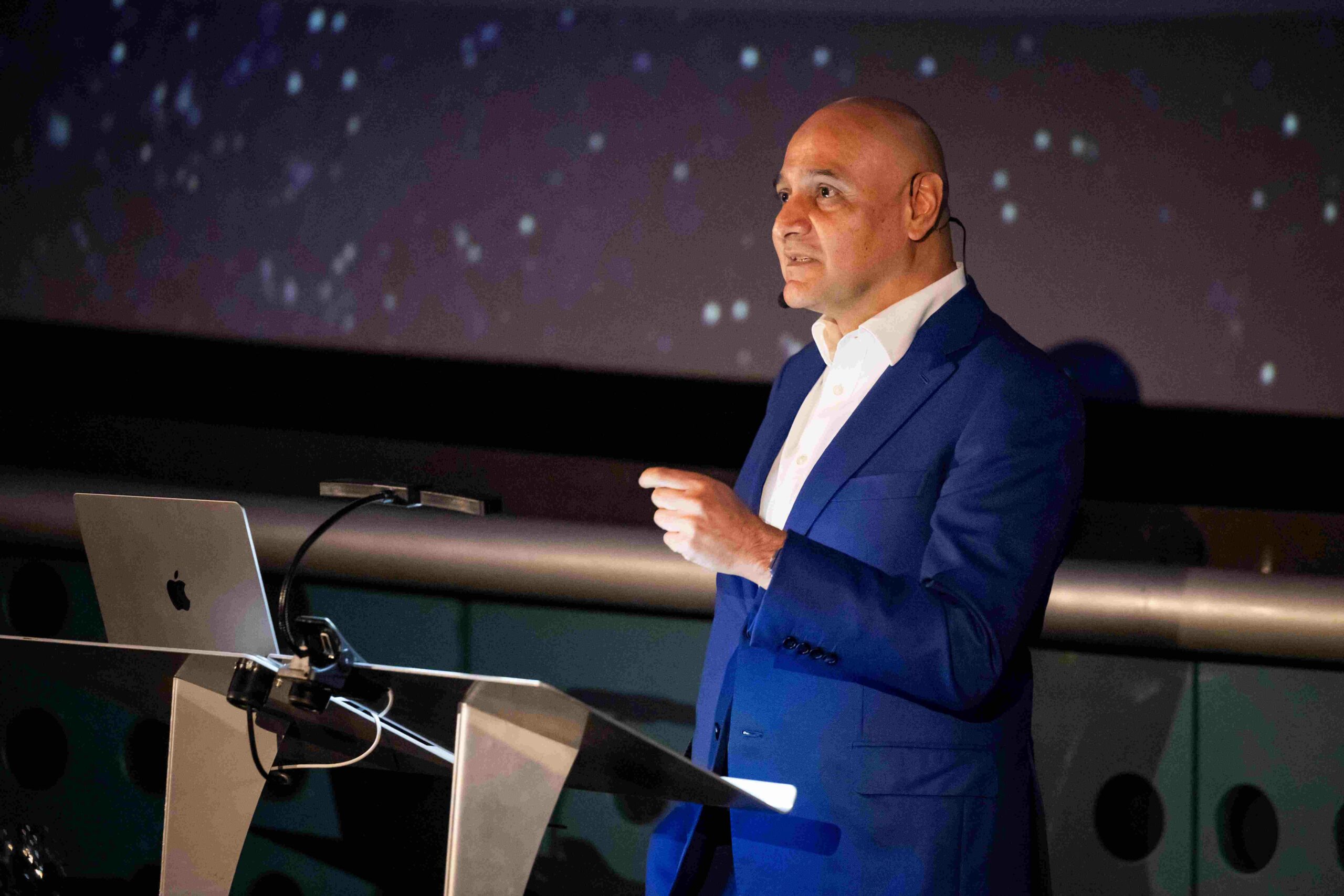East Midlands Chamber’s annual People and Skills summit took place on 12th June at Nottingham Trent University, bringing together 200 delegates from the business community and education sector.
Through a series of talks, keynote speakers and workshops, the summit was centred around the Chamber’s Manifesto for Growth 2024 – which outlines a set of policy asks for the next government to consider.
Speakers at the summit included: Professor Baback Yazdani, Executive Dean of Nottingham Business School; Kate Lee, Talent & Resourcing Manager, Samworth Brothers; Emma Kwiatkowski, Director, Hays; Craig Brothers, Vice President, East Midlands Chamber; Laura Shepherd, Director of Strategic Partnerships, Loughborough College and Dr Gareth Thomas, Managing Director, Skills and Employment Support Ltd.

East Midlands Chamber Head of Special Projects Richard Blackmore said: “Reforming skills is an essential ingredient to economic growth and all the research we conduct with businesses in the East Midlands – like our latest Quarterly Economic Survey where 66% of respondents in the region reported difficulties recruiting staff – has underlined the need to address the issue. The East Midlands People and Skills summit is one of the ways the Chamber can get right into the heart of the issues faced by businesses, breaking them down and finding solutions to overcome each hurdle.
“Candidate needs are evolving, while factors like technology advance just as quickly. Businesses need to ready themselves for emerging technology like AI and what that might mean for the skills candidates might need in the future. Workplaces need to be attractive to new recruits and be open minded to finding ways to match their needs with those of prospective employees. That can mean consideration of things like having a strong Corporate and Social Responsibility policy, offering employees the opportunity to engage with communities and charities, for example.
“If we can pinpoint the sticking blocks in skills, recruitment and retention, we can fix them and that’s why it’s so important that businesses and educators engage with each other, to solve staffing issues both now and in the future.”
Skills & Employment Support Limited Managing Director Dr Gareth Thomas, who chaired a panel discussion on engagement between businesses and educators said of the benefit of the summit: “It drives relationships, gets more businesses talking to the training organisations and the educators, and supports innovation. There’s a lot that the education sector can learn from industry and if some of that expertise can be shared on the back of the summit that’s great. The summit helps to raise awareness of the great offer of training and funded training that is available here in the East Midlands that most employers probably aren’t aware of.”
Loughborough College Director of Strategic Partnerships and External Relationships Laura Shepherd said: “It’s been great to be able to engage with businesses at the summit. It’s absolutely fantastic that businesses are interested in engaging with how they can develop themselves and fill some of the skills gaps. Every educator that was at the summit seemed keen to have a conversation.”
ER Recruitment Owner Eileen Perry and Co-Chair of East Midlands Chamber Enterprising Women network, following a talk on engagement between educators and employers said: “There’s an innocent disconnect between employers and educators because people don’t often see the mutual value. There’s so much in it for businesses to engage with educators, in terms of supporting their students, getting them work-ready, but then also there are the opportunities for ongoing learning for your own workforce. It comes back to mutual benefit and realising that it’s there, then taking advantage of it.”
Loates HR Co-Owner and Founder Sarah Loates was part of a panel discussion following a talk, presented by Emma Kwiatkowski, Director at Hayes titled What Workers Want, and said: “We’ve got five generations in work. Gen Z’s and millennials that want different things from work, for example. Employers are going to have to start thinking about how they can provide what that generation want from the world of work. There’s a bit of a disconnect between what employers think people want and what that generation actually want.”








